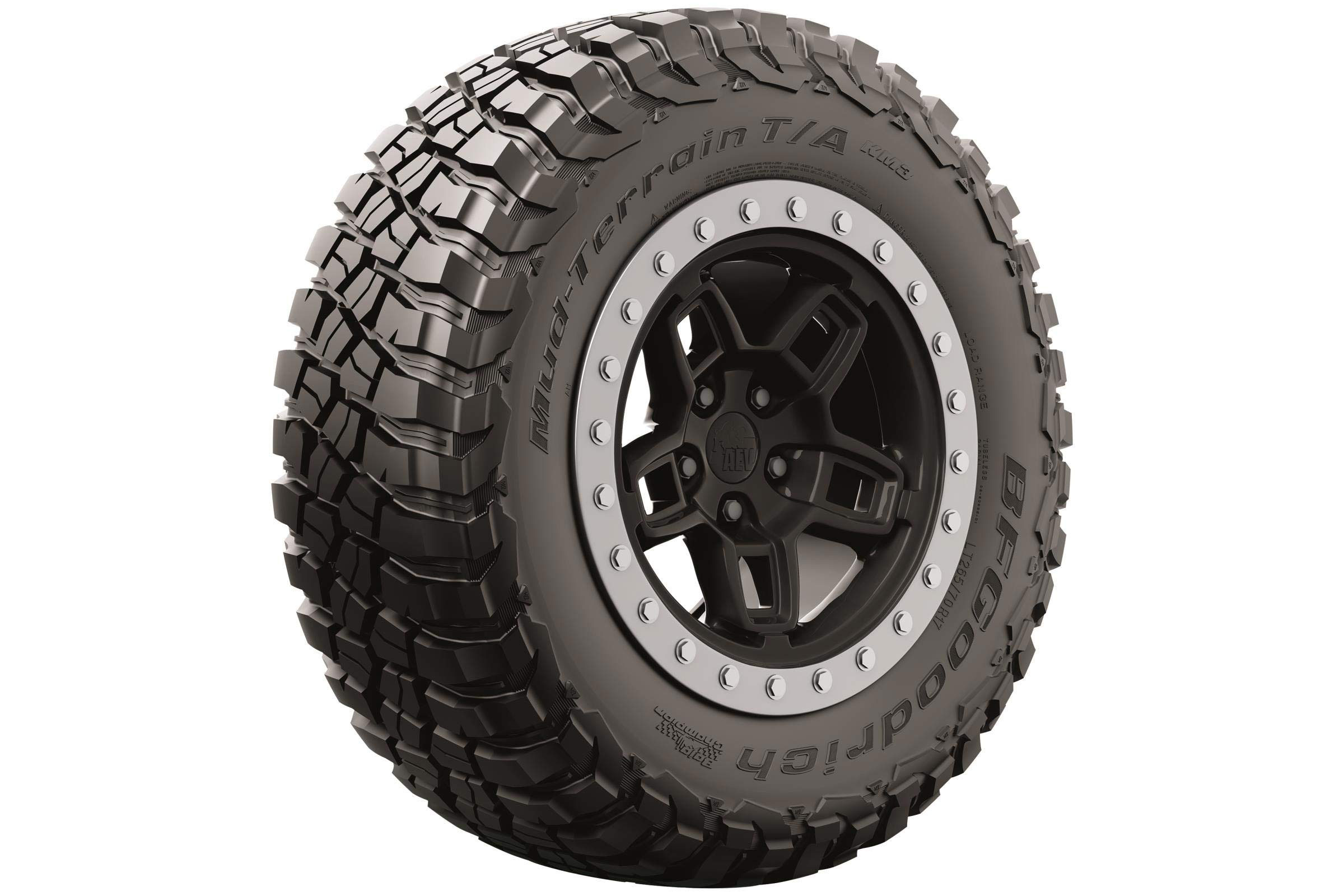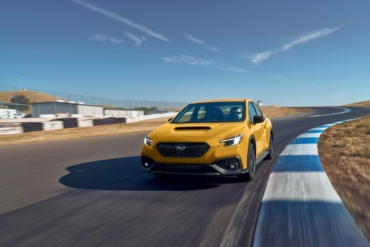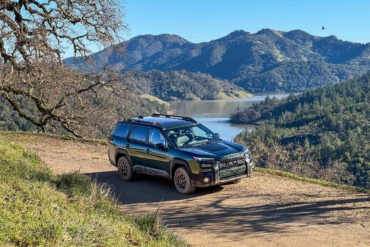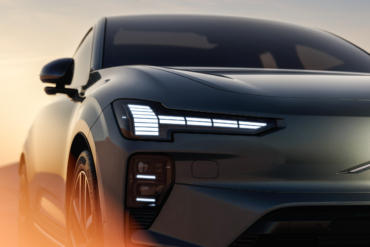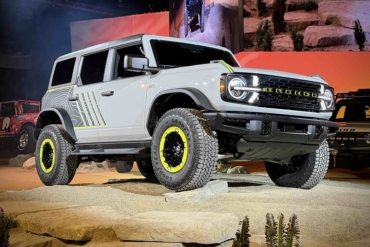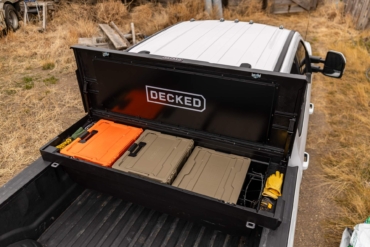One of the most crucial components of any vehicle is often overlooked — tires. Bear in mind that tires are your auto’s only point of contact with the ground. Their traction keeps you rolling in the intended direction, and their properties contribute to your vehicle’s handling, performance, and fuel economy. Though your stock tires are usually adequate, they ought to be the first thing you should consider upgrading.
Aftermarket tires give you great bang for your buck when scaling up your ride’s performance. And if you have an SUV or crossover vehicle, there are a multitude of choices on the market to sort through.
Since most SUVs can go anywhere from the pavement to paths less traveled, tires are available for every situation. Some tires can dramatically improve comfort and handling on the road, others focus on all-weather performance, and a select group performs exceptionally well on dirt, rocks, and whatever other terrains you find.
We diligently scoured the market to find the best SUV tires for specific categories. Between on-vehicle testing and perusing countless reviews, we’ve gathered the best of the bunch to help you find the right tires for your SUV. As a result, we’ve got a killer set of SUV tires for you, whether you’re looking to tighten up your cornering, improve performance in rain and snow, or take your ride off the road.
Scroll through our carefully curated selection below, and if you need more help deciding, be sure to check out our comprehensive buyer’s guide, and FAQ at the end of this article.
The Best SUV Tires of 2023
BFGoodrich Advantage T/A Sport LT
Pros
- Great handling on asphalt
- Durability on dirt
- Hydroplaning resistance
Cons
- Heavier tires mean a drop in fuel efficiency
- Owners mention road noise and comfort don't quite match the top-tier premier touring all-season tires
Continental CrossContact LX25
Pros
- Delivers a plush on-road experience
- All-season tread works well on dry, wet, and snowy roads
- EcoPlus+ Tech helps extend tread life and reduce braking distances on wet surfaces
- Flanged sidewall helps protect against curb rash
Cons
- Wet and icy performance is good but not great
- Ride feels unsettled over repetitive bumps
Pirelli Scorpion AS Plus 3
Pros
- Built specifically for SUVs and crossovers
- Carries over all the accomplished qualities of the original
- Scores high in wet, dry, and snowy conditions
Cons
- Not 3PMSF rated
Michelin Latitude Sport 3
Pros
- Outstanding wet and dry traction, handling, and cornering
- Excellent tire feedback and response
- Predictable and smooth
Cons
- Not built for snow or ice
- Treadwear
Goodyear Assurance CS Fuel Max
Pros
- Low rolling resistance benefits fuel efficiency
- Proficient wet and dry traction
- Smooth and comfortable ride
- Best-in-class treadwear
Cons
- Road noise increases as tires get older
- Winter traction has room for improvement
General Grabber A/TX
Pros
- Equally capable on and off the road
- Solid traction and balance on hard-packed surfaces
- Long treadwear life expectancy
- Durable
- Studdable
- Affordable price
Cons
- Lots of highway noise
BFGoodrich Mud-Terrain T/A KM3
Pros
- Excellent off-road grip
- Durability
- Wide grooves perform well on soft snow and muddy conditions
Cons
- Lots of freeway noise
- Commands a high price tag
Michelin Latitude X-Ice Xi2
Pros
- Excellent traction on ice and snow
- Effective siping
- Meets severe snow service requirements
- Drives like an all-season tire
- Resistant to hydroplaning
Cons
- Reduced traction in deep slush and slow
- Not as grippy as studded tires
- Not intended for season-long deep snow
Falken WILDPEAK A/T TRAIL
Pros
- High center of gravity
- Equally comfortable on asphalt and dirt
- Road noise doesn’t increase as the tire wears over time
- Relative low weight
Cons
- Not as aggressive as off-road-specific tires
Toyo Open Country A/T III
Pros
- Stellar traction and performance on any terrain or surface conditions
- Steering is precise and responsive to natural effort
- Great snow grip
- Accomplished at towing and carrying large loads
- Sturdy appearance looks good, and flaunts its intentions
Cons
- Noise level is not ideal
- On-road performance isn’t the Open Country AT3’s strength
- Decreased fuel economy compared to all-season tires
- Deep mud and snow can get packed
Cooper Endeavor Plus
Pros
- Smooth and quiet on the road
- Excellent steering feel
- Wet and snow traction above average
- 6-year, 65k mile warranty
Cons
- Room for improvement for grip in the snow

Why You Should Trust Us
We get that people want the best value on gear before spending their hard-earned money. Our expert team carefully selects the products we cover and vigorously researches (and tests) our top choices. Bottom line: The GearJunkie staff is dedicated to exhaustive analysis and helping our readers make informed choices.
Buyer’s Guide: How to Choose the Best Tire for Your SUV

Below are a few key considerations that you will want to contemplate when choosing the best SUV tires for your particular vehicle and use case.
Size
Finding an equivalent replacement is straightforward if you’re not looking for a bigger tire size. You can just look at the specs listed on your current tires’ sidewalls and buy the same size. Things get a little more complicated if you’re planning on going bigger. The clearance for bigger tires sometimes requires a body or suspension lift.
Also, verify the wheel wells will accommodate a full turning radius with your tires. Few things are more disconcerting than hearing your tires grind away at your fenders when you’re making a sharp turn.
Many manufacturers like Michelin and BFGoodrich have tire size charts and calculators to help you determine what size tires you need. If you still have questions, feel free to reach out to a local mechanic or tire shop to have them assess your needs.
An in-person assessment is preferred if you’re planning on lifting your ride. A shop visit allows an experienced professional to get eyes on your vehicle and figure out how much clearance you’ll have and what size tires you’ll be able to clear.
If you’re going with bigger tires, be aware that a heavier tire will add weight to your vehicle. More weight translates into poorer gas mileage. Larger tires will also raise your vehicle higher off the ground, which can also lower your fuel economy. Unless you’re specifically looking to increase your ground clearance for serious off-roading, you’ll probably want to look for a set of tires that won’t add much height or weight to your SUV.
Driving Conditions and Tire Type

There are about as many tires on the market as there are ways to use your SUV, so make certain that the tires you get work as intended.
Performance Tires
If you’re planning on using your SUV exclusively on the road, shoot for a set of performance tires, like the Latitude Sport 3 from Michelin. These tires come stock with high-performance SUVs.
If you’re looking for a smoother ride with better cornering and handling on the pavement, tires like these are the way to go. They often sport low-profile treads to diminish road noise at speed and are designed to minimize rolling resistance and maximize fuel economy.
All-Season Tires
All-season tires will be a good idea if you live in an area with predominantly warm weather. Generally, they are similar to performance tires and often share many features. The main difference is that all-season tires will provide a degree of performance in all but extreme weather conditions.
In industry terms, the all-season designation means that these tires will work and stay pliable in temperatures above 44 degrees Fahrenheit. Hence, they perform best in summer, spring, and fall. For good measure, the optimized tread design sheds water and works well in warmer climates.
An all-season tire has firmer rubber than all-weather or winter tires, which adds durability and treadwear life. Unfortunately, that rubber compound usually hardens in temperatures below 44 degrees, which affects traction and thereby increases the risk of sliding in frigid temperatures, ice, or snow.
Winter Tires
Winter or snow tires are preferable if you live in colder climates. By design, winter tires will stay soft and flexible in below-freezing temperatures. The rubber won’t stiffen in temperatures below 44 degrees Fahrenheit, allowing it to grip asphalt and ice better.
They also shed water and slush well due to the tread design. Needless to say, that soft rubber will wear down quickly when used during the summer months.
All-Weather Tires

All-weather tires combine the properties of winter tires and all-season tires. The rubber in these tires is firmer than winter tires but softer than all-season tires. Accordingly, they will grip well in colder temperatures but not wear down as quickly when the weather heats up. They’re not as grippy as winter tires or durable as all-season tires.
Nevertheless, if you live in an area where the climate varies wildly throughout the year, and you don’t want to invest in two sets of tires, they’re a great all-around choice.
Highway Tires
Highway tires generally have an all-season tread pattern and are designed with durable rubber and tread patterns that resist wearing. These properties make a great option if you’re using your SUV for on-pavement road trips or as a daily commuter. The smooth ride and low road noise make them great for on-road use.
All-Purpose Tires
Slightly more rugged than your standard highway tire, all-purpose tires usually feature fewer sipes than highway tires. They typically feature a tread pattern with overlapping blocks to add more off-road traction as well. They’re great for drivers who spend most of their time on the road but will hit the occasional dirt road or fire trail.
All-Terrain Tires
All-terrain tires are an invaluable choice for drivers who go off-road as often as on-road. This type of tire features larger tread blocks and more tread gaps for added grip. Designed for use in gravel, sand, and light mud, these tires provide an off-road capability, an aggressive look, comfort, durability, and minimal road noise. Check out our All-Terrain Tires Guide for more info.
Mud-Terrain Tires
If you’re a mudder, you’ll want to find a pair of mud terrains. These tires sport extremely aggressive tread patterns with wider voids and larger lugs to provide traction in deep mud and sand. The tread tends to run over the sidewalls as well. This detail adds more traction in deep muck and gives a more aggressive look.
Moreover, the reinforced sidewalls protect against punctures and tears. The downside to these tires is that they add quite a bit of road noise and vibration compared to all-terrain or all-purpose tires.
Price and Durability

Depending on your tire needs, a set of tires can cost from under $100 up to several hundred per tire. On average, many choices are in the $100-200 range.
Be sure to check on a tire’s durability when shopping. The average lifespan of a tire is typically around 30,000 to 60,000 miles or 3-5 years, depending on maintenance, driving style, road conditions, climate, and other factors. Replace tires older than 10 years because the chemical compounds used in rubber will lose their effectiveness and lose their structural integrity.
If you have a specialty tire like a winter tire, you’ll likely get less mileage due to the tire’s softer rubber. Also, mud-terrains and all-terrains need replacement more frequently, as off-road usage is hard on a tire.
FAQ
Many great brands make tires specifically for SUVs and crossovers. If you’re unsure who to go with, look at the more well-known brands like Michelin, BFGoodrich, Continental, Bridgestone, or Pirelli. These companies devote a lot of time to refine the tires they build and have millions of miles of experience. They also tend to have excellent warranties on their tires, so in the unlikely event that something goes wrong, they tend to back up their product and make things right.
That’s not to say that the second-tier tire makers, like Falken and Toyo, aren’t worth a look. The less prominent brands tend to innovate and may incorporate features or compounds that other, more widely known brands may not. Plus, they often offer solid guarantees on their products.
If you’re looking for a tire for driving specifically on snow and ice, we’d recommend an all-weather or winter tire. These tires have softer compounds than all-season tires. The winterized formula prevents the tire from stiffening up and losing traction in frigid temperatures.
Most SUV tires last around 30,000-60,000 miles or 3-5 years on average. Maintenance, driving style, road conditions, climate, and other factors will determine how many miles you’ll get from a set of tires.
Nonetheless, replacing tires after a maximum of 10 years or when the tread is worn to 2/32 of an inch or less is strongly recommended. High-performance, winter, and mud-terrain tires may need replacement sooner, depending on how hard you ride them.
If you’re wondering how far your tires will go the distance, check the manufacturer’s replacement policies. It can reflect a product’s longevity based on how long the manufacturer thinks it will last. Tires with higher warranties, say 60,000 miles, should get you more mileage than tires backed by a 30,000-mile warranty.
Buying tires from the dealership can be more convenient. You can usually choose your tires and have them installed when you get an oil change or any scheduled service.
The downside to buying from a dealership is that it limits your tire options. Often, choices are limited to original equipment tires, so if you want something more unique or specialized, you may be better off shopping elsewhere.

The Best Truck Campers of 2024
Dive into the world of truck campers with us. We go over the best models and all the important info you’ll want to know before buying one.

The Best Overland Water Storage Containers for Long-Distance Travel
We got our hands on three of the best and most common overland water storage containers to find out what they’re all about.







